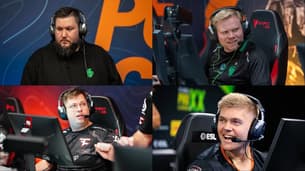
Gambling News Alert: How Esports Athletes Navigate New Sponsorship Regulations

Esports has exploded into a global entertainment juggernaut, with tournaments drawing millions of viewers and attracting investment from some of the world’s biggest brands. Sponsorships have long been the financial backbone of the industry, supporting teams, tournaments, and athletes alike. Yet as esports becomes more mainstream, increased scrutiny has landed on one of its most controversial revenue streams: gambling sponsorships.
Recent regulatory changes are forcing esports organizations and athletes to rethink their partnerships with betting companies. While these deals once provided lucrative opportunities, new rules have introduced complexities that reshape how sponsorships are managed. For athletes navigating this changing environment, adaptation is not just smart—it is necessary.
This article explores how esports athletes are adjusting to the evolving sponsorship landscape, the impact of regulation on the industry, and the best practices guiding teams and players toward a sustainable future.
Understanding the Evolving Landscape of Esports Sponsorships
The sponsorship model in esports has expanded far beyond its early reliance on gaming hardware and software companies. Today, partnerships span lifestyle brands, apparel lines, energy drinks, and technology firms. Gambling companies have also entered the fold, drawn by esports’ young, highly engaged audience and the rise of esports betting platforms.
But the inclusion of gambling sponsors has raised questions about responsibility. Critics argue that a large portion of esports fans are minors, making exposure to betting advertisements problematic. As regulatory bodies respond, the sponsorship environment is shifting dramatically.
Coverage from gambling news sources underscores this evolution, highlighting how esports sits at the crossroads of financial opportunity and ethical responsibility. Sponsorships remain vital for the industry, but compliance and community trust are now equally important.
Recent Changes in Sponsorship Regulations
Governments and regulators are responding to growing concerns by tightening sponsorship rules. In the United Kingdom, stricter advertising standards now limit gambling promotions during esports broadcasts, especially when young viewers are likely to be watching. These rules have already led to gambling companies scaling back their partnerships with esports teams.
In the United States, the situation is even more complex, with state-level laws determining what types of gambling sponsorships are allowed. Some states encourage regulated betting partnerships, while others restrict or prohibit them outright.
For esports organizations, this creates a fragmented environment that requires constant monitoring. Contracts and campaigns must be tailored to meet legal requirements across multiple jurisdictions, raising both legal and operational challenges.
The Impact of Gambling Sponsorships on Esports
The debate over gambling sponsorships in esports reflects both the opportunities and risks involved.
On the positive side, gambling sponsorships bring significant financial support. These deals have funded better player salaries, state-of-the-art training facilities, and high-quality tournament production. For smaller teams, gambling partnerships often mean the difference between stability and financial struggle.
On the negative side, the association with gambling has fueled concerns about the industry’s image. Esports prides itself on inclusivity and its connection to younger audiences, yet gambling sponsorships risk alienating fans and attracting criticism from advocacy groups. The challenge lies in balancing financial gain with ethical responsibility, a balance that athletes themselves often feel directly.
How Esports Athletes Are Adapting to New Regulations
Athletes are not passive participants in this shift; many are actively adapting their personal brands and sponsorship strategies. One approach is education. Increasingly, athletes are learning the legal frameworks surrounding gambling sponsorships, ensuring they understand what agreements mean for their careers. This knowledge empowers them to engage confidently with sponsors and avoid reputational risks.
Diversification is another key trend. Athletes are no longer relying heavily on gambling-related deals. Instead, they are building partnerships with apparel companies, tech firms, energy drink brands, and streaming platforms. By broadening their sponsorship portfolios, they create resilience against revenue losses should gambling deals decline.
Additionally, athletes are leveraging their influence to align with brands that reflect their values. In a regulated environment where fans scrutinize every partnership, authenticity has become a valuable currency.
Best Practices for Esports Organizations and Athletes
To navigate this changing landscape effectively, organizations and athletes are adopting several best practices:
- Engage legal expertise: Consulting professionals who understand both esports and gambling law helps teams avoid compliance pitfalls.
- Prioritize transparency: Open communication with fans about sponsorships, including their nature and purpose, builds trust.
- Focus on responsible messaging: If gambling partnerships continue, embedding messages about responsible play can mitigate concerns.
- Diversify revenue streams: Expanding into non-gambling sponsorships and content creation reduces reliance on a single industry.
By embedding these practices, athletes and organizations can protect their reputations while still capitalizing on lucrative opportunities.
The Future of Esports Sponsorships in a Regulated Environment
The sponsorship future in esports is likely to become more diversified and socially conscious. Gambling companies will remain involved, but campaigns will increasingly emphasize responsible gaming to comply with regulations and public expectations. Meanwhile, other sectors—such as technology, consumer goods, and lifestyle brands—are poised to deepen their investments, drawn by esports’ expanding global audience.
As esports continues to merge with mainstream culture, partnerships that prioritize ethics alongside profitability will gain the greatest traction. For athletes, the ability to adapt, diversify, and remain transparent will define success in this evolving ecosystem.
Conclusion
The tightening of sponsorship regulations marks a turning point for esports. While gambling sponsorships have historically provided crucial funding, new rules demand that athletes and organizations adopt smarter, more responsible strategies. By educating themselves, diversifying their partnerships, and committing to transparency, esports athletes are proving their ability to thrive even in a regulated environment.
Ultimately, these changes could lead to a healthier, more balanced sponsorship model—one that ensures esports remains both financially sustainable and socially responsible as it grows into one of the defining industries of the digital era.

Kateryna Prykhodko is a creative author and reliable contributor at EGamersWorld, known for her engaging content and attention to detail. She combines storytelling with clear and thoughtful communication, playing a big role in both the platform’s editorial work and behind-the-scenes interactions.
 Best Danish CS2 Players of All TimesExplore how Denmark became a powerhouse in Counter-Strike through iconic veterans and a new wave of talent keeping the country at the top of esports
Best Danish CS2 Players of All TimesExplore how Denmark became a powerhouse in Counter-Strike through iconic veterans and a new wave of talent keeping the country at the top of esports Best Roblox Brainrot Games - September 2025Discover the best Roblox Brainrot games - the funniest titles and unique gameplay.
Best Roblox Brainrot Games - September 2025Discover the best Roblox Brainrot games - the funniest titles and unique gameplay. The Final Valorant Night Market of 2025 Opened on September 25 On September 25, 2025, Riot launched the last Night Market of the year, giving players two full weeks to try their luck and secure exclusive weapon skins at reduced prices.
The Final Valorant Night Market of 2025 Opened on September 25 On September 25, 2025, Riot launched the last Night Market of the year, giving players two full weeks to try their luck and secure exclusive weapon skins at reduced prices. VALORANT Night Market schedule 2025 - When Is the next Night MarketThe VALORANT Night Market is one of the game’s most anticipated events, giving players the chance to grab rare skins at huge discounts.
VALORANT Night Market schedule 2025 - When Is the next Night MarketThe VALORANT Night Market is one of the game’s most anticipated events, giving players the chance to grab rare skins at huge discounts.

